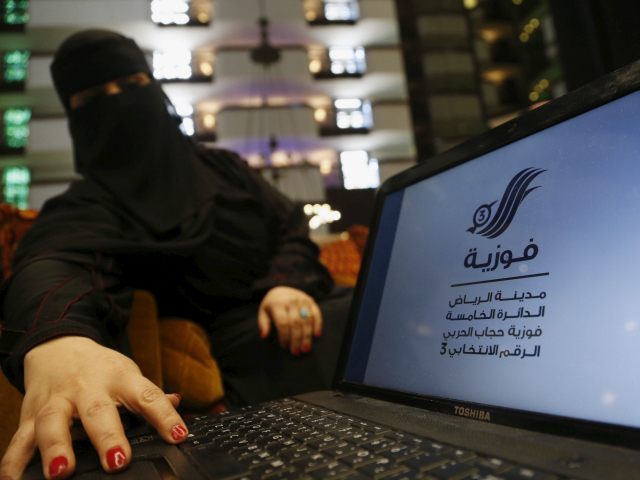The sharia-compliant Kingdom of Saudi Arabia is facing a spike in interest in birth control and family planning, as the nation grows in wealth and women seek work outside the home.
Saudi OB-GYN Dr. Emad R. Sagr told the Saudi Gazette that the rise in women obtaining a higher education “has resulted in rapid change in the socio-demographic pattern of the Saudi community.” The paper reported:
On the sidelines of a seminar on contraceptives held in Jeddah recently, Dr. Sagr told the Saudi Gazette that the interest of Saudi woman is no different from that of her Western counterpart as a social being. He noted that for the last couple of decades, pregnancy among Saudi women have trickled out as education pervades in the young generation of female Saudis.
In 1970, literacy rates for women stood at just two percent. Four decades later, Saudi Arabia now boasts a female literacy rate of 91 percent (compared to 97 percent for men), with claim to have almost completely eradicated illiteracy among younger generations of women.
Sagr noticed a sharp rise in contraception use among women 30 years old and older “with a higher level of education” and those with a large family. He said models showed “that the significant determinants of the use of contraceptives were women’s working and education.”
In December, outlets reported that King Abdullah may implement “a population control policy following a doubling of the population in just 15 years.” The Shoura Council provided him the document after the council rejected it twice. Experts have pushed for the restrictions for economic reasons.
“Families have to apply birth control in order to reduce expenses and provide better education and facilities to their children,” explained economist Fadhel Al-Bouainain. “Birth control should be a strategic objective.”
The census states the Kingdom houses almost 20 million people.
Women made history in December when they voted alongside men in an election. Zee News India highlights a variety of other basic activities women are banned from participating in, such as:
1. Go anywhere without a male guardian
Saudi women must accompany a male relative, known as a “mahram”, whenever they venture out of the house. Mahram accompanies the women at all times, including for shopping trips and visits to the doctor.
2. Drive a car
Although there is no official law that bans women from driving, the country’s deeply held religious beliefs prohibit it, with some clerics argue that female drivers “undermine social values”.
3. Wear clothes that show off their body
Saudi women’s dress code is governed by a strict interpretation of Islamic law. Women must wear a long black cloak and a head scarf. Religious police would stop them if they expose too much flesh or wear too much makeup.
The Saudi kingdom recently arrested Samar Badawi, who received the “International Woman of Courage Award” in 2012 from then-U.S. Secretary of State Hillary Clinton. Human rights group believe authorities arrested her because she participated in a Twitter campaign to release her husband.
“Samar Badawi’s arrest today is yet another alarming setback for human rights in Saudi Arabia and demonstrates the extreme lengths to which the authorities are prepared to go in their relentless campaign to harass and intimidate human rights defenders into silent submission,” declared Philip Luther, director of Amnesty International’s Middle East and North Africa Program.

COMMENTS
Please let us know if you're having issues with commenting.